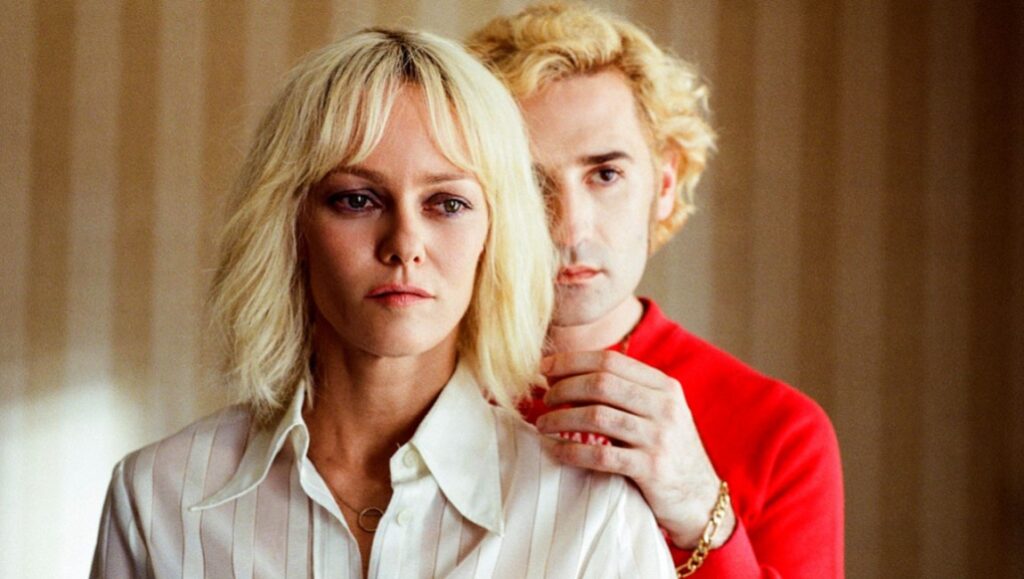Knife + Heart was probably the oddest entry in Cannes’ main competition slate last year — a trendy, queer, pop cinema throwback that stood-out in a sea of stodginess from the usual festival circuit faves. Director Yann Gonzalez previously caught the attention of world cinema’s elite back in 2013, when his charmingly debauched debut, You and the Night, earned itself a special screening at Critics’ Week. With his leap up to the main slate, it’s reasonable to suspect that Gonzalez will become a favorite of international fest programmers for years to come. But outside the insular festival echo chamber, Knife + Heart appears much lighter, a very slick, very cool movie that isn’t truly prepared to contend with the cultural history it cannibalizes. Concerning itself with the goings ons of a French gay porn studio, operating in the days before the AIDS epidemic, Knife + Heart shifts gears when a director and their crew suddenly find themselves the targets of a masked killer, whose presence begins to influence the studio’s current production in ways both overt (the dying-off of the performers) and unexpected (a porn narrative branches off for recreations of police interrogations and acts of sadism).
One would imagine that such a premise would naturally build-out into a bold statement. But Gonzalez is unable to milk anything fresh out of his conceit. In fact, boldness is lacking across the board, from the peculiar choice to not indulge in male nudity to a dredging-up of New Queer Cinema’s pet themes (the connective tissue between sex and death, a very literal interpretation of Mulvey’s “Phallic Economy”). This sheepish approach even characterizes the film’s tone, with Gonzalez (perhaps intentionally) confusing loving homage with parody. While the film’s best trait is its assertion that pornography, particularly gay male pornography, is of artistic and historical value, Gonzalez is unfortunately unable to resist jokes at the expense of his characters, and ends up painting them as silly and pretentious. The self-aware industry satire may have amused festival-goers, but divorced of that context, it feels empty.
Published as part of Before We Vanish | Issue 3.


Comments are closed.